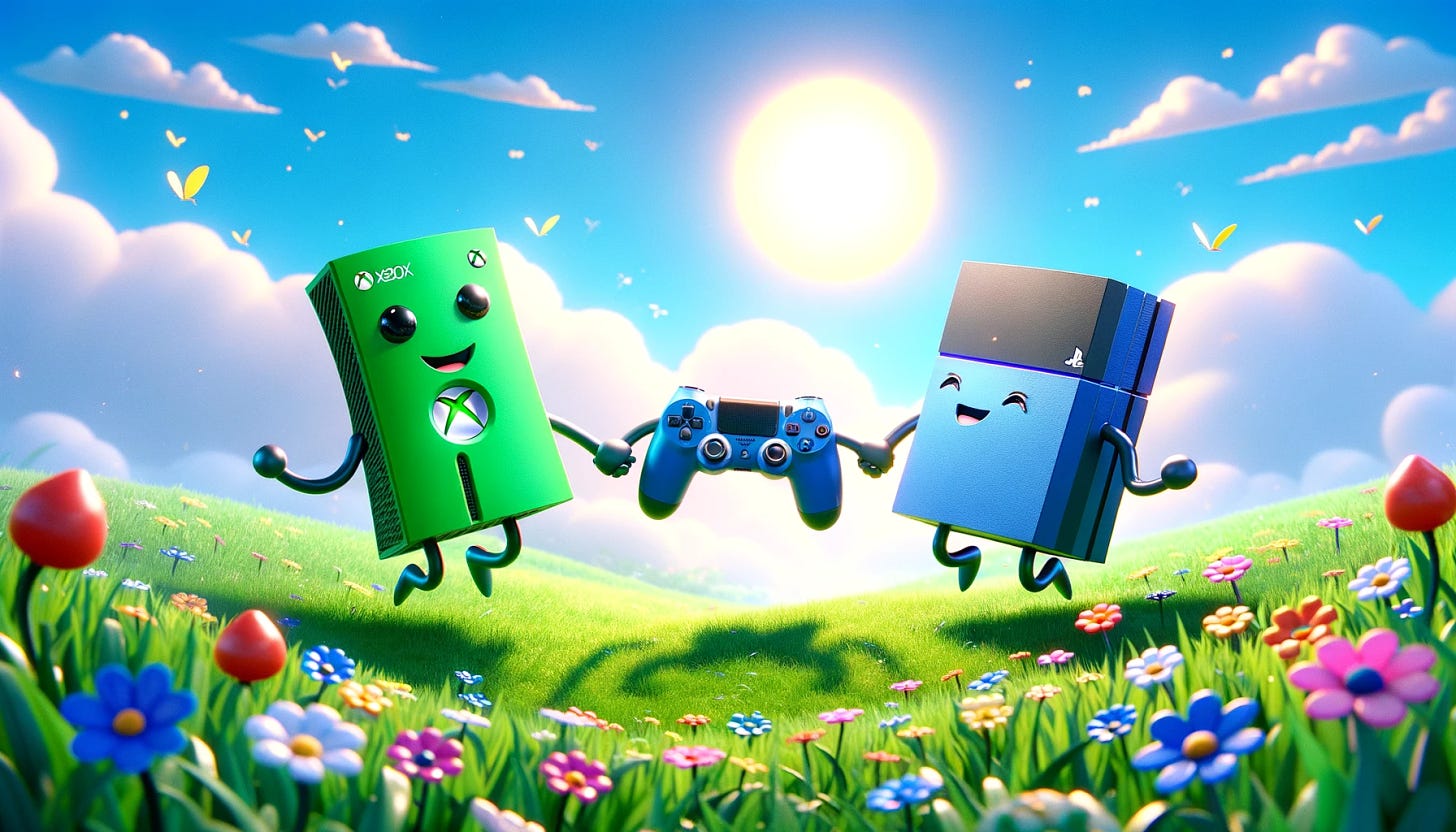Tech's next battleground: The gaming wars shift to subscriptions, not consoles
Are we witnessing the dawn of platform-agnostic gaming? Rumours are that the gaming industry is about to change dramatically as Microsoft rewrites its Xbox strategy.
Recent rumours of Microsoft bringing its prized Xbox exclusives such as Starfield, Gears of War, and Hi-Fi Rush to other consoles have sent shockwaves through the gaming world. It felt like every day this past week had a new report from a different outlet, showing a clear (and credible) pattern emerging. Finally, Xbox CEO Phil Spencer has responded to the rumours and said they will have a business update on the future of Xbox next week.
This bold move of Microsoft bringing exclusive Xbox games to other platforms signifies a potential tectonic shift in the industry, one that could rewrite the script on console exclusivity and pave the way for a future dominated by subscription-based gaming. Is this the beginning of the end for dedicated consoles as we know them?
Let's look at some of the context leading up to next week’s update.
Microsoft, acknowledging they're not winning the console war in terms of numbers, seems to be pulling a double-edged sword. On one hand, they're potentially offering Xbox games on other platforms, expanding their reach beyond loyal Xbox owners. This echoes Sega's decision to abandon hardware and focus solely on software, a move that ultimately led to their exit from the console race.
However, Microsoft's strategy also holds a crucial difference. With the ever-growing popularity of subscription services like Game Pass, the company is potentially prioritizing user access over console dominance, aiming to build a loyal subscriber base regardless of the platform they choose. This aligns with Phil Spencer's ongoing vision of "gaming anywhere, anytime," where the focus lies on the experience rather than the device.
So, will gamers bite? This shift raises intriguing possibilities. Increased accessibility could attract new players and expand the gaming community. Developers might benefit from a larger, more diverse user base. For gamers, the ability to choose their preferred platform while still enjoying their favourite titles could be a dream come true (not to mention help eliminate fanboyism).
This all sort of feels like Microsoft is taking a page from its Windows and Surface strategy. While Windows is available on all sorts of platforms, Microsoft also has a premium hardware line in its Surface products for those who want an end-to-end experience from the company. You also can find modern Microsoft Office products on Mac and Android, something that was a big deal when it was announced.
Then, pulling things up to an even higher level, there is the right-timing factor when it comes to internet access. Like with other areas of technology, widespread access to high-speed internet has allowed subscription of intensive services (like 4K video) to thrive.
For years, people had been skeptical about gaming subscription services because the internet speeds and latency required hadn’t fully caught up to the vision. That didn’t stop both Microsoft and Sony from releasing digital-only versions of their latest consoles that didn’t have a disc drive, however, and the pandemic helped accelerate high-speed internet rollouts to more rural and suburban areas of countries.
But as enticing as the move with Xbox sounds, concerns linger for some. The erosion of console identity could lead to homogenization, potentially hindering the unique experiences each platform currently offers. Hardware innovation might stagnate if developers prioritize compatibility over pushing the boundaries of specific consoles. Then the subscription model, while convenient, raises questions about ownership and long-term access to games, as we’ve seen with music and music.
Microsoft's success hinges on striking a delicate balance. The company needs to maintain a distinct Xbox ecosystem while offering accessibility through subscriptions.
For example, this could mean (off the top of my head):
Discounted Game Pass subscriptions for Xbox console owners, incentivizing them to stay within the fold while enjoying the subscription's benefits.
Exclusive content or early access for specific titles on Xbox consoles, rewarding dedicated users and showcasing the hardware's capabilities.
Continuous investment in high-performance hardware, ensuring Xbox consoles remain attractive for those seeking cutting-edge experiences while maintaining some competition in the industry.
Another crucial factor in all of this is the increasing cost of game development, something that has been talked about for years. With AAA titles requiring massive budgets and resources, even the biggest studios struggle to recoup their investments.
Releasing on multiple platforms allows developers to reach a wider audience and increase their chances of profitability, allowing room for more risk-taking and freedom. For Microsoft, bringing their exclusives to other platforms could be a strategic move to ensure financial viability for ambitious projects.
So what does this all mean? Ultimately, Phil Spencer's upcoming business update promises more clarity.
One thing is certain though: the industry is at a crossroads. The lines between platforms are blurring, subscription-based gaming is taking centre stage, and developers are navigating a challenging economic landscape.
Whether this leads to a unified future for gaming or a fragmented landscape remains to be seen. But one thing's for sure: the way we play games is about to change, and the next few years will be crucial in shaping the industry's trajectory.







